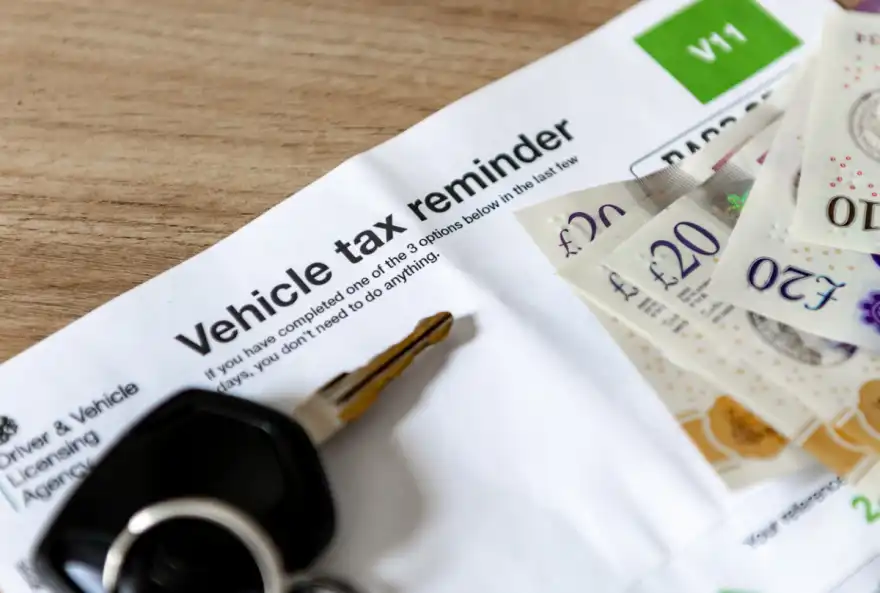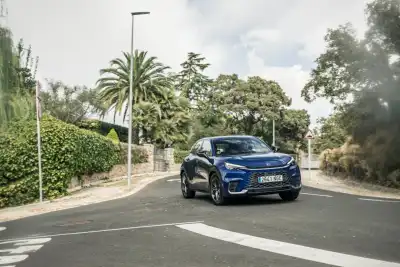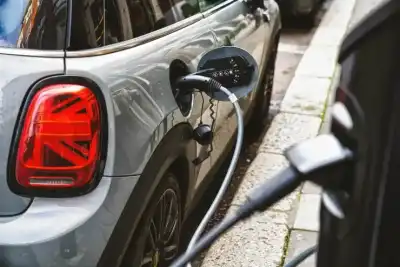
Driving is about to get more expensive in 2025, and this time, it’s not just petrol and diesel car owners feeling the pinch. Even if you’ve opted for an electric vehicle (EV), you’ll soon be affected by new Vehicle Excise Duty (VED) rules introduced in the latest budget.
In her first budget as Chancellor, Rachel Reeves unveiled a series of tax increases, and motorists have been hit hard. The government estimates that by the 2027/28 tax year, it will collect £9.4 billion from VED—an increase from the £7.3 billion collected in 2022/23. These changes are part of a broader effort to raise revenue, but they could mean significant added costs for many drivers.
How Road Tax Works
Vehicle Excise Duty, also known as car tax or road tax, is determined by when a car was registered. For cars registered after April 1, 2017, the new rules will apply. However, cars registered before that date will continue to be taxed under the previous system. There are also unique tax rules for vehicles registered between 1984 and 2001, which apply varying rates depending on engine size.
Petrol and Diesel Cars
The most substantial changes to VED will affect the first year’s tax, commonly referred to as the ‘showroom tax.’ This rate is calculated based on a car’s CO2 emissions, with higher-emission vehicles incurring significantly higher charges.
For example, zero-emission cars will pay a minimal £10 in their first year until 2029-30. However, vehicles emitting between 1-50 g/km of CO2, such as hybrids, will see their first-year tax jump from £10 to £110. Cars producing 51-75 g/km of CO2 will see an increase to £130, while all other rates for vehicles emitting 76 g/km or more will double. To put this into perspective, a new Ford Puma’s first-year tax will increase from £220 to £440, while a Range Rover could see a staggering rise from £2,745 to £5,490 in the first year alone.
Fortunately, the second-year rate for petrol and diesel cars will remain the same at £190 per year. This consistency may offer some relief, particularly for those who plan to keep their vehicles long-term.
Electric Vehicle Owners Face New Costs
For electric vehicle owners, the tax landscape is about to change significantly. The government has announced that from April 2025, EVs will no longer be exempt from road tax. Instead, they will be taxed in much the same way as other vehicles.
In their first year, EVs will incur a minimal £10 charge. From the second year onward, cars registered after April 1, 2017, will pay an annual flat rate of £195. Vehicles registered before April 1, 2017, will be charged £20 annually. Additionally, EVs priced above £40,000 will also become subject to the luxury car tax. This surcharge, which costs £425 per year, is payable annually between the second and sixth years of a car’s lifespan, regardless of whether ownership changes hands.
Hybrid Cars Are Also Affected
Hybrid cars registered on or after April 1, 2017, will lose their £10 annual VED discount starting in 2025. From the second year onward, these vehicles will pay the standard flat rate of £195 per year, in line with petrol and diesel cars. For hybrids registered before 2017, tax rates will continue to depend on CO2 emissions under the older system.
Older Cars
Cars registered between 1984 and 2001 will also see tax increases. For vehicles with engines smaller than 1549cc, the annual rate will increase by £10 to £220. Larger engines will face a £15 increase, bringing the yearly tax to £375. While these increases are smaller than those affecting newer vehicles, they still add to the overall cost of ownership.
Exemptions
Despite the sweeping changes, some vehicles will remain exempt from road tax. Classic cars over 40 years old will continue to qualify for exemption, as will vehicles used by disabled drivers or to transport disabled passengers. Agricultural vehicles, such as tractors, will also remain tax-free.
What About Vans and Motorcycles?
For commercial vehicles, such as vans and pick-up trucks, the changes are relatively straightforward. These vehicles currently pay a flat annual rate of £335, which will increase to £345 in 2025. Electric vans, which have so far been exempt from VED, will also begin paying this rate from 2025.
Motorcycle taxes, meanwhile, remain tied to engine size. Annual rates currently range from £25 to £117, depending on the bike’s engine capacity. Starting in 2025, electric motorcycles and tricycles will no longer be exempt from tax and will instead be subject to the lowest rate, which is currently £25 per year.
How Will This Impact You?
For many drivers, the most noticeable impact will be the higher first-year costs for new cars. These charges are often included in the monthly payments for car finance and leasing deals, which may soften the blow for some. However, the end of tax exemptions for electric vehicles and hybrids is a clear signal that the government is looking to recover revenue as the industry moves away from traditional combustion engines.
If you’re considering buying a new car, it’s worth factoring these changes into your budget. Whether you’re opting for an EV or sticking with a petrol or diesel vehicle, planning ahead could help you manage the extra costs coming in 2025.
Check when your vehicle tax expires using Regit's free car tax check.



